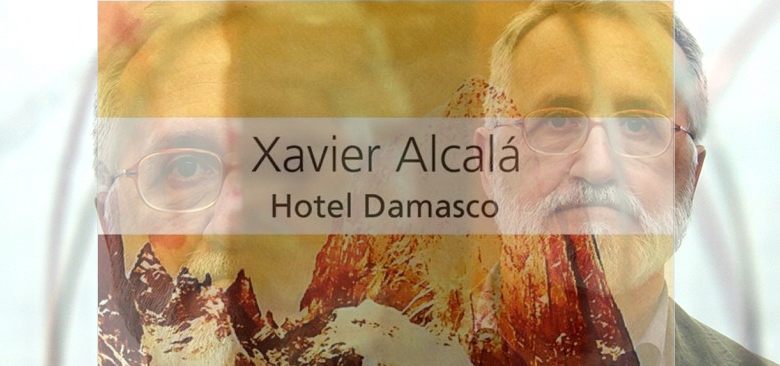Simon Whitaker has already read Brit Es Magazine’s new serial Hotel Damasco and it has set his mind whirring. Here are his thoughts on why you should read it too.
Simon Whitaker has already read Brit Es Magazine’s new serial Hotel Damasco and it has set his mind whirring. Here are his thoughts on why you should read it too.
Read the first chapter of Hotel Damasco here.
Those of us who cannot read in either Galician or Spanish now have access to a new story. Hotel Damasco is gripping enough to hold our attention purely as a narrative, but it is also a story deeply embedded in a complex world, and it certainly helped me to consider how my world is arranged. The style of this newly-completed translation perfectly accompanies the intriguing story it tells; that is to say, it is excellent writing. Having no access to the original Galician prose, I cannot know whether it always cleaves close to the original, or departs in some particulars. However, the feelings and ideas we are reading about seep into the style with fascinating precision.
Those of us who cannot read in either Galician or Spanish now have access to a new story. Hotel Damasco is gripping enough to hold our attention purely as a narrative, but it is also a story deeply embedded in a complex world, and it certainly helped me to consider how my world is arranged. “
Such things seem simple when we read them, to be expected, but there is a world of difference between, for example, merely describing a ‘tangled uproar’ as a boat arrives at a new world port, and Xavier Alcalá’s whirling, disorientating depiction of the sights, sounds and thoughts involved in such an arrival. Alcalá’s prose mingles concrete images of ‘crying children’ with abstract concepts like ‘extravagant consignments’; it puts on display newly arrived pianos and newly arrived men, alongside newly arrived desires, ‘to make the impossible possible’. This is a tangled uproar of prose, and such correspondence between the object of description, and the manner of its describing, is a constant delight of this story.
This, then, is writing whose style sets us thinking and thinking again about whatever subject it elects to narrate or describe, and this makes it good English writing. However, the subject it sets us thinking about is enchantingly unfamiliar, so that this little novella provides an object lesson in why translation is a very special way to understand Spanish-language cultures.
Despite the familiarity of the language, which is comprehensible even when it is lyrical, I found myself on largely unfamiliar ground. This is a world in which Europe and America are connected in a way unimaginable for me as a Londoner; my only connection to any American nation is that I share a language with two of them. It also urgently conveys a feeling I have never experienced, of constantly suppressing a language which I think of as my ownmost; our protagonists speak Spanish by default, but are always seeking signs that they might be able to relax into their native Galician. And though these things will not all be unfamiliar to everyone, they combine uniquely here, alongside a myriad of other tiny potential-oddities; and as a story about the New World, this is a tale geared towards introducing the unfamiliar – it makes us think about unfamiliarity.
We should know it because in a very short space of time, we get introduced to a context and experience of emigration to America quite foreign to the ‘English’ experience of the New World. We should know it because we might never even have realised that this region of Spain, Galicia, has close direct ties to a country halfway round the world.”
This is a world patterned out by the mind of a Galician, and with this new translation, it now comes to us in fascinating and engaging English. Through the medium of well-deployed English style, we gain sudden access to a story which we should probably all know – which we should have known before.
We should know it because in a very short space of time, we get introduced to a context and experience of emigration to America quite foreign to the ‘English’ experience of the New World. We should know it because we might never even have realised that this region of Spain, Galicia, has close direct ties to a country halfway round the world. We also might not know that these ties are independent of the Spanish government and derive from links by family, traceable down to the level of villages in Galicia, but that they are nonetheless political, and institutionalised.
Such knowledge could helpfully fracture edifices we might have built in our minds to shore up the integrity of nations – they might show us something of the world’s complexities. And we should learn such things from Hotel Damasco, and not only from the narrative itself; we can also feel these things, in the undulation of the prose. We can know them, that is, as something more like experiences than facts. This is valuable not least because experiences are more memorable, and Hotel Damasco’s knowledge is, I think, worth committing to memory.

